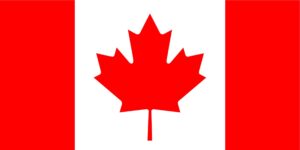Legal Analysis
The legal basis for compulsory licenses under Canadian Patent law is the Canadian Patent Act (hereinafter “Patent Act”) Chapter 9.

Additionally, Part 12 of Bill C-13 amends the Patent Act to permit the Government of Canada, upon the application to the Commissioner of Patents to make, construct, use and sell a patented invention to the extent it is necessary to respond to a public health emergency.
Compulsory license have been granted:
- In times of public emergency;
- For inventions produced in whole or in part through public funding
- As a remedy to counteract anti-competitive practices or effects
- Where the statutory monopoly causes undue or unexpected harm to the public or is abused by the patentee; and
- When an invention concerns a field of technology deemed particularly crucial
Abusive rights provision
In Canada, under section 66(1)(a) of the Patent Act, a compulsory license can be granted when the patent is been used in an abusive manner. Specifically, section 66(1)(a) states:
On being satisfied that a case of abuse of the exclusive rights under a patent has been established, the Commissioner may exercise any of the following powers as he may deem expedient in the circumstances:
(a) he may order the grant to the applicant of a license on such terms as the Commissioner may think expedient, including a term precluding the licensee from importing into Canada any goods the importation of which, if made by persons other than the patentee or persons claimi
ng under him, would be an infringement of the patent, and in that case the patentee and all licensees for the time being shall be deemed to have mutually covenanted against that importation
Between 1935 and 1993, 96 applications for a compulsory license have been filed under this provision.
COVID- 19 Regulations and Proposals
As a result of the Covid-19 pandemic, the House of Commons of Canada passed an Act on March 2020 which is effective through September 2020 that provides certain measures in response to COVID-19.
Specifically, Bill C-13 part 12 temporarily amends section 19 of the Patent Act, adding section 19.4 to authorize the Government of Canada and any person specified in the application to make, construct, use and sell a patented invention to the extent necessary to respond to a public health emergency that is a matter of national concern.
Requirements of obtaining Compulsory License
An application for a compulsory license must be made by the Minister of Health and the Commissioner of Patents shall authorize the Government of Canada and any person specified in the application to make, construct, use and sell a patented invention to the extent necessary to respond to the public health emergency described in the application.
Procedure for Granting Compulsory Licensing
According to section 19.4 (1) of the Patent Act, the application must be made by the Minister of Health and shall:
- Set out the name of the patentee and the number, as recorded in the Patent Office, of the patent issued in respect of the patented invention;
- Include a confirmation that the Chief Public Health Officer, appointed under subsection 6(1) of the Public Health Agency of Canada Act C.2006, c.5, believes that there is a public health emergency that is a matter of national concern;
- Include a description of the public health emergency; and
- Specify a person, if any, that is to be authorized to make, construct, use and sell the patented invention for the purposes of responding to the public health emergency.
A third party looking to apply for compulsory licensing, must submit a document with supportive facts. There is no specific format. The Commissioner of Patents issues the authorization to use the invention. This use by the authorized person is exempted from infringement (s.19.4(7)). Although not called a license, the practical effect is like a license.
Appeal/Review
Section 19.2 of the Patent Act grants the patentee the right to appeal the Commissioner’s decision to the Federal Court, including application and remuneration. However, section 19.2 does not apply to section 19.4.
The new regulation grants the Federal Court the right to make an order requiring the Government of Canada or any authorized person to cease making, constructing, using or selling the patented invention only in a manner that is inconsistent with the granted authorization.
Jurisprudence
In Canada, as of now, there has been no reported cases of compulsory license.
________________________
To make sure you do not miss out on regular updates from the Kluwer Patent Blog, please subscribe here.



Do you have any examples CL implementation yet?